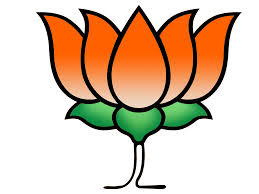BJP should be proud of being pro-industry
Ravi Shanker Kapoor | May 31, 2015 2:18 pm

Hardly a day passes when some political party or the other does not say something nasty about ‘corporates’—an example of bad English but widely in use, for the word ‘corporate’ can never be used as a noun. We are also told about the ‘nexus’ that the Bharatiya Janata Party (BJP) has with big business, that it runs a suit-boot ki sarkar, that the fat cats are further being fattened at the expense of the poor; long is the litany of woes against the ruling party. The saddest part of this perverted political discourse is that the BJP, while denying the allegations of impropriety, has implicitly accepted the premises and postulates from which this discourse emanates: that is, the saffron party has accepted that the interests of the rich and the poor, of employers and of employees, of industrialists and of farmers are at variance with each other. But this is nothing but a version of the discredited class war theory of Marxists.
Interestingly, there is nothing in the BJP’s manifesto, policies, and programmes to suggest that it accepts the class war theory. Sabka saath, sabka vikaas is a most important slogan of the ruling party; it is also a tacit repudiation of all the doctrines that thrive on a plethora of divisions—industrialist-worker, rich-poor, urban-rural, upper caste-lower caste, and so on.
Yet, in practice, the BJP is playing in the hands of the Opposition by trying to distance itself from the corporate sector, as if it comprises crooks and gangsters. For instance, to counter the remarks of Congress leaders and others that it is pro-industry, party president Amit Shah said on May 10, “The money deposited in government exchequer [by way of coal and 2G spectrum auctions] was realized from the corporate houses only and Congress termed BJP as pro-corporate. I call upon the BJP workers to give a befitting reply to the Congress’ charges during ‘Mahasampark Abhiyan’ (grand contact drive). Now people have to decide whether it was UPA which was pro-corporate or NDA, as the money which BJP-led government has deposited in the exchequer has been realized from corporate houses only.”
This is as bad as it gets, for the reason that such remarks are an unspoken acceptance of the dubious and dangerous class struggle doctrine, the sloganeering to the contrary notwithstanding. If you are reluctant to be called pro-investor, because you yourself equate such a position as antithetical to the interests of the poor, you will also be reluctant to do anything substantive that can be called pro-investor. Reluctance to do away with retrospective taxation is an example of that, something that has dampened the enthusiasm of investors.
It might be argued that no political party leader can afford to be pro-industry, that having such an image could be politically perilous if not suicidal. But this argument again is the product and function of Leftist worldview, for people at large do not disapprove of big business, only intellectuals do so. In fact, intellectuals disapprove of anything that normal human beings are fond of.
An illustration: Our intellectuals never tire of railing against big corporations (‘corporates’). We are told that these companies exploit their employees, bribe politicians and bureaucrats, break or mold rules and regulations, evade taxes, and don’t care a hoot about the environment. Yet, if you ask any non-intellectual if they would like to work with a big company—or if they want their children to be employed by an MNC—the answer would be a big ‘yes.’ Common people know that big companies pay well, have a better working atmosphere, and are not run by the whims and fancies of small, proprietary firms—at least, at the lower and middle levels. They are happy working with big corporations.
But intellectuals claim that they are exploited by corporate tycoons. Oxford Dictionary defines the verb ‘exploit’ as ‘make use of (a situation) in a way considered unfair or underhand’ or ‘benefit unfairly from the work of (someone).’ In the normal sense of the term, corporation employees are not exploited; this is the reason they work, and others aspire to work, for big companies. This is a weird form ‘exploitation’ where ‘the exploited’ are more than willing!
In fact, one main reason for the grand success of Narendra Modi in the general election last year, and the earlier Gujarat Assembly polls, was that he was seen as pro-industry. Top corporate bosses thronged to the investment summits he organized in his state. People all over the country saw a leader in him who would bring in investment, resulting in economic activity, jobs, and prosperity. Otherwise, it would be batting on a pitch—class war theory and the concomitant pathologies—prepared by its enemies.
Pic: Courtesy www.dreamstime.com






























